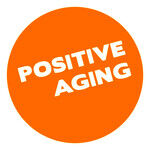You probably missed it, but Aug. 20 was World Mosquito Day in recognition (if not honor) of the insect responsible for nearly one-fifth of all vector-borne infectious diseases worldwide, including malaria, dengue, Zika, West Nile, chikungunya and yellow fever — and 700,000 deaths worldwide each year. Mosquitos kill more people than any other animal on Earth, except humans.
A blood-hungry female mosquito can smell a human target more than 150 feet away. Mosquitos seem to prefer some people more than others, with an estimated 20% of us deemed especially delicious. Scientists don't know why exactly, but here are a few possibilities:
— Blood type (Mosquitoes like Type O twice as much as Type A; Type B is in the middle.)
— People who exhale more carbon dioxide are more attractive. Generally, that means larger people.
— Mosquitoes also sniff for traces of lactic acid, uric acid and ammonia, all components of sweat. Exercise-sweaty humans are as aromatic and enticing as warm apple pie, minus the apple and pie.
— Some types of skin bacteria appear to make some humans more appealing. This may be why mosquitos target ankles and feet, both of which have robust bacterial communities.
— Clothing color. Mosquitoes like dark colors that stand out, such as black, navy blue and red.
— Mosquitos may be more attracted to beer drinkers, possibly because of alcohol excreted in sweat. No indication on whether the bugs prefer a nice lager or hoppy IPA.
Body of Knowledge
Just one drop of blood contains approximately 5 million red blood cells, 7,000 to 25,000 white blood cells and 250,000 platelets.
Get Me That, Stat!
The Robert Wood Johnson Foundation and Urban Institute have calculated another cost of the COVID-19 pandemic. In a new report, they estimate work absences increased 50% during the pandemic, with the majority being unpaid. That translates to approximately $28 billion in wages lost over the first two years of the pandemic.
Women were 40% more likely to miss work without pay; as were Hispanic and Black workers. Workers in households with less than $25,000 in annual income were more than three times as likely to be absent without pay compared with workers with annual incomes over $100,000.
Mark Your Calendar
Be very aware in September, which takes note of blood cancers, atrial fibrillation, childhood obesity, cholesterol education, pediculosis (lice infestation), sickle cell disease, ovarian and prostate cancer, polycystic ovary syndrome, sepsis and, if you can avoid all of these, healthy aging.
Counts
46.5: Mean age, in years, of registered nurses in national survey
17.8: Mean years of experience
67: Percentage of surveyed nurses who plan to leave their jobs within next few years
Source: Association of Critical-Care Nurses
Doc Talk
Uvulopalatopharyngoplasty: a procedure to remove tonsils
Phobia of the Week
Ablutophobia: fear of washing or bathing
Best Medicine
The nose is in the middle of the face because it's the scenter.
Observation
"The time is coming when there will be magic bullets to treat cancer the way we now treat many infectious diseases with vaccines and antibiotics." — Francis Collins, head of the Human Genome Project, quoted by Michio Kaku in "Visions: How Science Will Revolutionize the 21st Century" (1997). *
*That time has still not arrived.
Medical History
This week in 1888, a baby incubator was first used in the U.S. to care for a premature infant. Edith Eleanor McLean weighed 2 pounds, 7 ounces when she was born at State Emigrant Hospital in New York City. Originally called a "hatching cradle," the device was 3-foot square, 4-feet-high, with constant ventilation and temperature control. Fourteen of the devices were later exhibited at the 1904 World's Fair, complete with actual orphanage infants tended by nurses. Care of the infants was covered by the exhibit admission fee.
Self-exam
Q: Why does your nose run when you cry?
A: When you are emotionally aroused, the brain can send signals to your tear ducts to turn on the waterworks. Not all of the resulting tears fall from the eyes; some drain back into the nasal cavity where, combined with mucus, they produce a surplus of fluid that spills from your nose. You may think it's only tears, but it's not.
You nose may also run when you eat spicy foods or step out into the cold. In the first case, the nose is producing extra mucus to flush out "spicy" chemicals, such as capsaicin in peppers, before they irritate the respiratory system. In the latter, the extra mucus helps warm and moisten dry, chilly air before it reaches the lungs.
Last Words
"I would rather be a servant in the House of the Lord than to sit in the seats of the mighty." — Former Vice President (under President Harry Truman) Alben W. Barkley (1877-1956) during a speech in which he suffered a fatal heart attack
To find out more about Scott LaFee and read features by other Creators Syndicate writers and cartoonists, visit the Creators Syndicate website at www.creators.com.
Photo credit: 41330 at Pixabay






View Comments